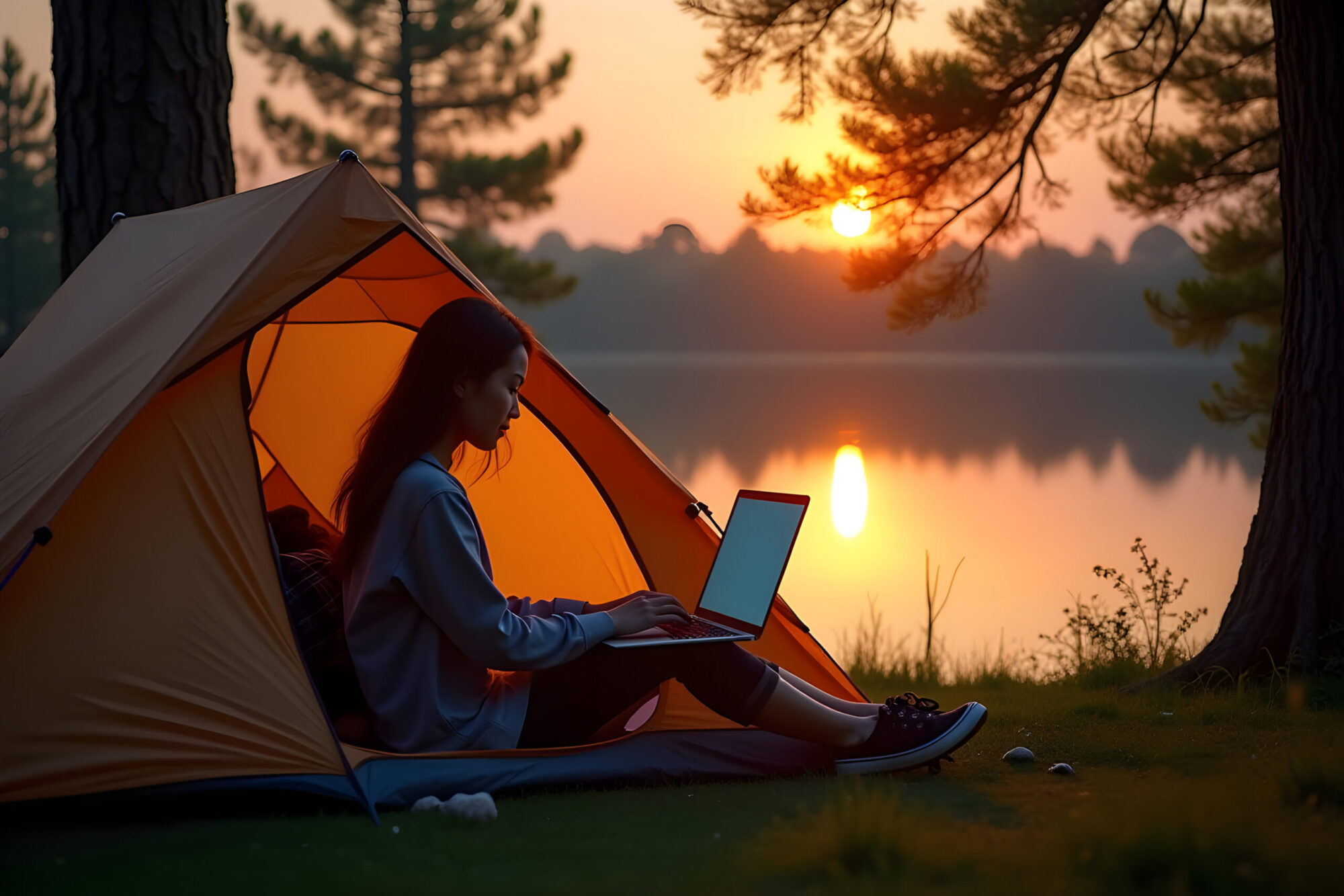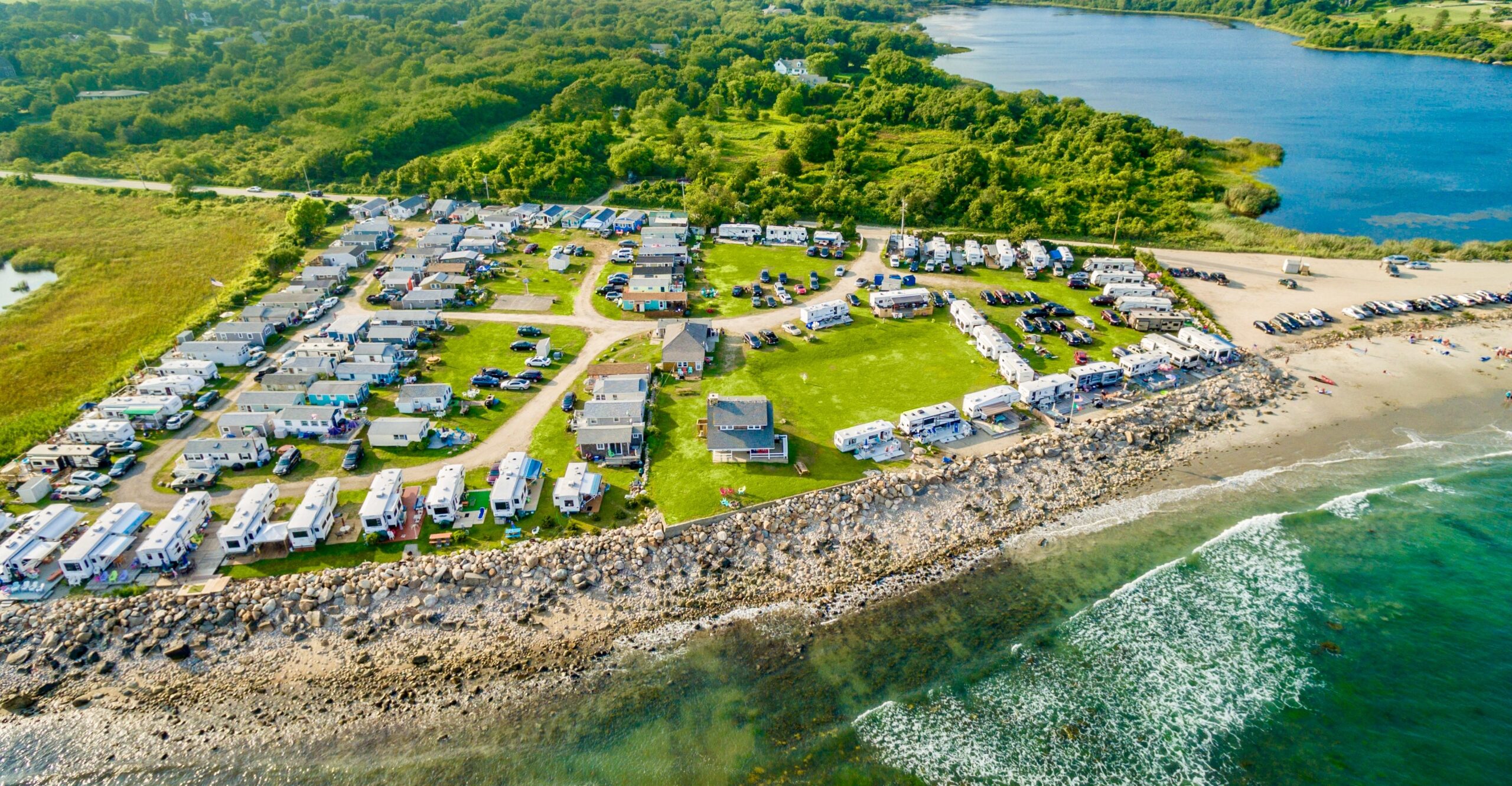The Future of RV Travel: Trends Shaping the Outdoor Hospitality Industry

The RV industry has always been dynamic, evolving with shifts in consumer preferences, economic cycles, and technological advancements. But in the past few years, we’ve seen some of the biggest changes in outdoor hospitality history.
RV travel is no longer just for retirees exploring the country at a leisurely pace. Today’s campers include remote workers, digital nomads, young families, and adventure-seekers who expect a mix of nature, convenience, and technology. And with more investment pouring into campgrounds, the industry is rapidly changing to meet new demands.
So, where is RV travel headed? Here are the top trends shaping the future of outdoor hospitality and what campground owners should do to stay ahead.
1. The Rise of the Remote Worker & Digital Nomad
The pandemic didn’t just push more people into RVing—it also redefined how and where people work. With remote work now a permanent reality for millions, more professionals are hitting the road in their RVs while keeping up with their careers.
What This Means for Campgrounds:
- Reliable Wi-Fi is no longer optional – Guests expect strong, campground-wide internet that supports video calls and remote work.
- Longer stays are becoming more common – Digital nomads book sites for weeks or months at a time, creating a steady revenue stream.
- Coworking spaces and work-friendly amenities – Parks that offer quiet work areas, private offices, or covered outdoor workspaces will stand out.
Campgrounds that cater to remote workers with strong infrastructure and extended stay discounts will attract a loyal customer base.
2. RV Rentals & Sharing Platforms Are Expanding the Market
Not everyone who wants to try RVing is ready to buy an RV. The rise of RV rental and sharing platforms like Outdoorsy and RVshare is bringing a new wave of first-time campers into the market.
What This Means for Campgrounds:
- Expect more first-time RVers who need guidance on setup and operation.
- Parks should simplify the check-in process and provide clear site layouts for guests unfamiliar with maneuvering large rigs.
- Consider partnering with RV rental services to offer delivery and setup options, making the experience seamless for new travelers.
As more people rent RVs for vacations, campgrounds that cater to newcomers will capture this growing segment.
3. The Growing Demand for Modern & Upscale Campgrounds
RV travelers today expect more than a basic parking spot with a picnic table. There’s increasing demand for well-designed, amenity-rich campgrounds that feel more like resorts.
What’s Driving This Trend?
- Millennials and younger generations are bringing higher expectations for comfort and convenience.
- Luxury RVs are becoming more popular, and their owners want premium facilities to match.
- The glamping boom is shifting guest expectations toward unique accommodations and high-end amenities.
What This Means for Campgrounds:
- Upgrading sites – Spacious, level, full-hookup sites with concrete pads, private patios, and fire pits are becoming the standard.
- Enhancing amenities – Resort-style pools, fitness centers, dog parks, and pickleball courts are now key differentiators.
- Incorporating glamping options – High-end cabins, safari tents, and yurts appeal to guests who want the outdoor experience without an RV.
Campgrounds that elevate their offerings will attract higher-paying guests and longer stays.
4. Sustainability & Eco-Friendly Travel Are Becoming Priorities
More campers are looking for sustainable travel options, and many prefer eco-conscious campgrounds that align with their values.
What This Means for Campgrounds:
- Investing in solar power and energy efficiency – Parks that incorporate renewable energy can reduce operating costs and attract eco-conscious travelers.
- Water conservation initiatives – Low-flow fixtures, rainwater collection, and native landscaping help reduce water use.
- Recycling & waste reduction programs – Offering recycling, composting, and waste-free check-ins appeal to sustainability-minded guests.
- EV charging stations – With electric RVs on the horizon, parks that add EV charging stations now will be ahead of the curve.
Sustainability isn’t just good for the environment—it’s a strong marketing advantage that attracts a new generation of eco-conscious travelers.
5. Campground Automation & Contactless Services
The hospitality industry has embraced contactless technology, and campgrounds are no exception. Campers expect quick, easy, and self-service options when booking and checking in.
What This Means for Campgrounds:
- Online reservations and mobile check-in – Guests want a smooth, hotel-like booking experience.
- Automated gate access – Parks that offer keyless entry and digital site assignments can reduce labor costs.
- Self-service kiosks – Allowing guests to check in, book amenities, and extend stays via a kiosk or mobile app streamlines operations.
As labor shortages continue, automation can improve efficiency while enhancing the guest experience.
6. The Shift Toward Multi-Use Outdoor Resorts
More developers are moving beyond traditional RV parks and creating multi-use outdoor resorts that blend RV camping with other lodging and activities.
What This Means for Campgrounds:
- Expanding beyond just RV sites – Successful parks now offer glamping tents, tiny homes, cabins, and adventure rentals.
- Adding adventure-based experiences – Zip lines, off-road vehicle rentals, and guided tours are becoming popular revenue boosters.
- Blending short-term stays with long-term options – Many parks now offer seasonal or full-time RV living alongside vacation stays.
The most profitable campgrounds are becoming full-scale destinations rather than just overnight stops.
7. The Changing Landscape of Campground Ownership
The RV park and campground industry has long been dominated by family-run businesses, but in recent years, we’ve seen a major shift toward institutional investment and consolidation.
What This Means for Independent Campgrounds:
- More competition from large corporations that are acquiring and modernizing parks.
- Higher property values as RV parks become recognized as profitable real estate investments.
- Opportunities for partnerships or sales for owners looking to exit the business.
Despite these changes, well-run independent campgrounds still thrive by offering personalized experiences and unique amenities that big corporate parks struggle to replicate.
Final Thoughts: The Future is Bright, But You Need to Adapt
The outdoor hospitality industry is evolving rapidly. RV travel is growing, but guest expectations are higher than ever. Campground owners who embrace these trends—from upgraded amenities and automation to eco-friendly initiatives and experience-driven stays—will be positioned for long-term success.
At Campground Consulting Group, we help owners and developers navigate these shifts, plan smarter investments, and optimize operations to stay ahead of the competition.
Thinking About Expanding or Upgrading Your Campground? Let’s Talk.
The future of RV travel is here. Let’s make sure your campground is ready.
Contact us today for a consultation.
[Insert Contact Information]
The outdoor hospitality industry is changing—don’t get left behind.






